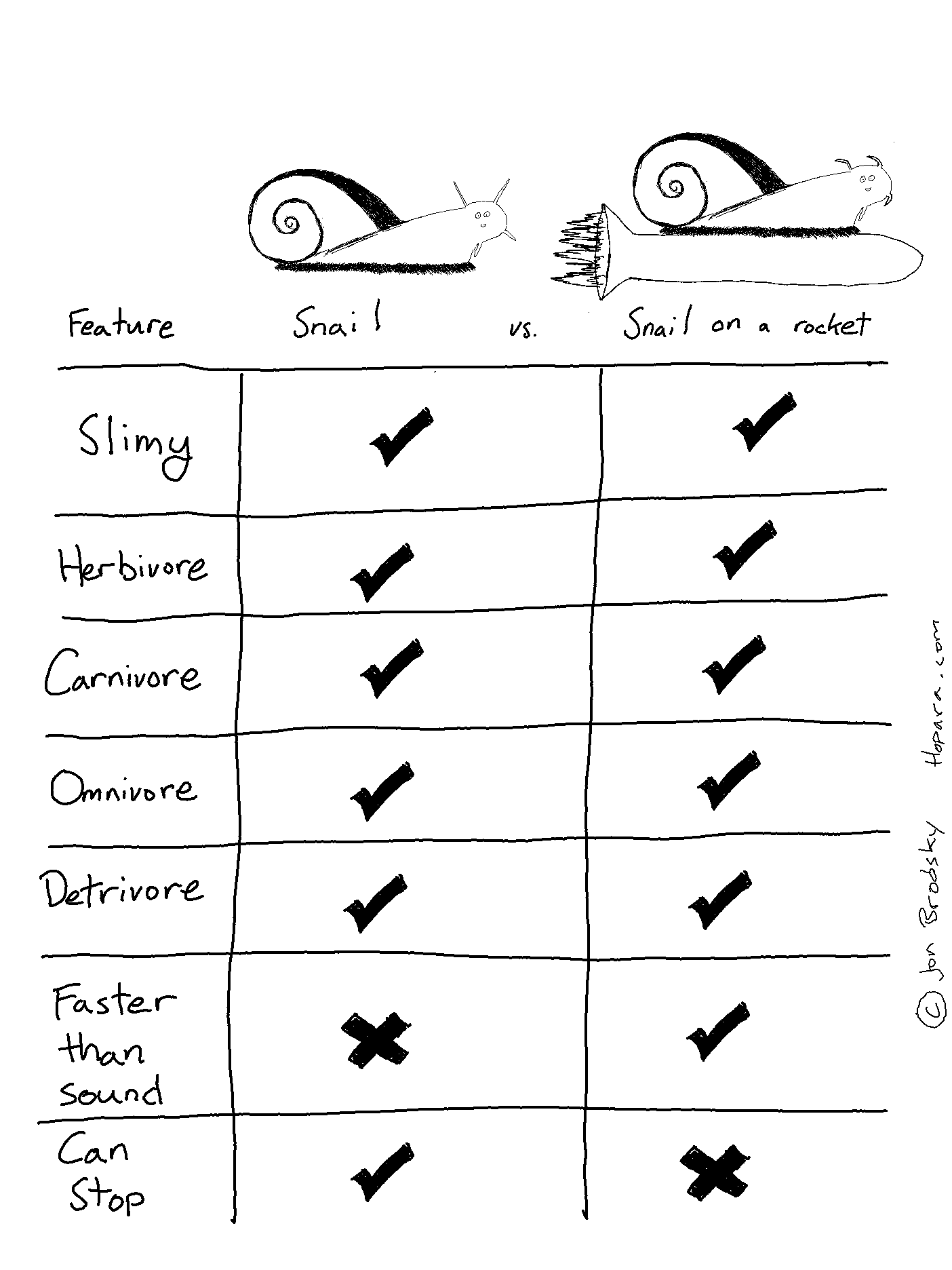Comparing features
I've had to spend a lot of time recently looking at different software programs for a few different clients at Hopara. They all have the checklist that tells you why the more expensive version is better than the cheap version, and they all highlight the one in the middle as "most popular" even if they've only ever sold their software twice.
I get it. It's one of those easy tricks that companies use to convince you to pay more, like the famous experiment from the economist where the pricing looked like this:

No one in their right mind picks the print-only subscription, and by anchoring the value of the web-only subscription at $59 and print-only at $125, the Economist made it look like $125 for both web and print was a screaming deal.
This worked so well that you see it almost everywhere now. And, unfortunately, it's become a pretty easy way to think about ourselves, too – I know that I'm always comparing myself to others in terms of what they have that I don't, rather than the opposite, which is what I have that they don't.
Subscribe to get these in your inbox daily
The latter version is much healthier, because each of us has something that no one else does. But when we see how others present themselves, they rarely focus on the things that they don't have. They would rather just leave that off the list, and most of us don't take the time to look at the obvious thing that they're missing.
Today's doodle is about something that seems prized above almost everything else, which is speed – the people who get work done fast tend to be the people who get ahead in the world. Venture capital and private equity firms (note: 100% of Hopara's clients are funded in some way, usually by these types of firms) need companies to move fast, because that's how their metrics work: the internal rate of return ("IRR") that they use to raise more money is more dependent on how long it takes for an investment to sell than the cash-on-cash return in most instances.
Speed isn't always a good thing, though, because speed can make you run right into a wall at 100 miles per hour.
So here's a feature set for today, of a snail vs. a snail on a rocket. Next time you see someone else talking about how wonderful they are, look at the opposite of the feature they throw out as their defining characteristic and see if you'd prefer that.






